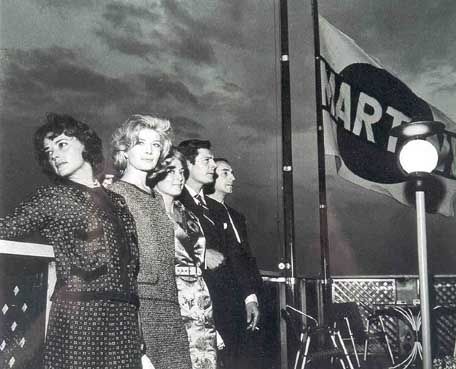Viewing Log #54: Assembling Assayas [8/28+29/10]
by Ryland Walker Knight

—Caught having a great time*
No less than two but no greater than a couple of stalwart critic-types that I'm friendly with have implored me to "resurrect the log." Thus, a minor stab to elucidate this tweet and our title above. That is, I'm gonna tinker with my format**. I did the log for almost a year pretty faithfully though some thick and some thin and, yes, in that time my life's gotten fuller. August 2010, especially, was jam packed. There were some visits, some beautiful meals, a beautiful wedding, a lot of wild times, screenplay revisions, copy editing, plenty of poems written by hand in notebooks and on index cards. I don't necessarily want to quit the blog, or the internet, and I know that's probably impossible for me, but I am working hard to stay off the computer these daze. However, I spent most of this weekend watching films alone. That is, these films***:
- Fin Août, Début Septembre [Olivier Aassayas, 1998] Perfect that Liz paired it with My Sex Life...(here) as they're cousins for sure. I feel closer to the Desplechin, for its risks, but I did love this one, too. A friend likes to joke that this is the most supreme flattery for aimless boys like us, unmoored near 30 and mired only by time. I think he's onto something, but I'm happier with my lot than Amalric is in either of these films. And, besides, however much I adore Mathieu's face (and see myself a little), the real crux of the film is Adrien's love for Véra (François Cluzet ranges deep, if not wide, and you can guess how I feel about Mia Hansen-Løve). Not only that, I found myself drawn to the form, to those fade outs, to telling stories in discrete nuggets of allotted/delimited time. If Desplechin gets novelistic through narration and scope, affecting the voice of a novel more than anything, Assayas (here, at least) shapes his films as would a novelist so we get breaths to pause or to look away (at a window maybe, or at the back of your eyelids), affecting the passage of one page to another, one chapter to another—the physical act of reading a book, holding it in your hands, cradling it in a bed, stuffing it in a bag, letting it develop in shadow (in the background), pushing through to the end in order to cry. And then finding the world, your life, again when you've found the finish. After all, it's also a movie about refusing resignation. —Who doesn't like those?
- Boarding Gate [Olivier Aassayas, 2007] Joked with Danny that it's a riff on Contempt since "the inciting incident" doesn't really happen for half the movie. In fact, were it not for the electricity between Asia Argento and Michael Madsen, or for the final shot, this would be pretty thin. Doesn't mean it isn't fun, or that I wasn't simply vibing on just how sexy our angry lady is, but I expected a bit more than a few chase scenes in Hong Kong. Telling that, after Madsen, Argento's best sparring mate isn't her other lover but her other lover's wife, played with pluck by Kelly Lin. (Last: doesn't hurt that Kim Gordon, though not an actress, can command an image for just long enough to pressure the frame full.)
- Irma Vep [Olivier Aassayas, 1996] The thing that surprised me the most was the humor. You expect Maggie Cheung to be excellent, and you expect a film made by a critic to be super smart, but you don't exactly expect this much mucking around. And I certainly didn't expect the finale: an argument for film, for stars, for sound design, for mauling the image, for images' autonomy within limits, for how we can make the world as we see it (even if it's a fantasy), for the gamble of celluloid and for the malleability of Forms. The sheer amount of varied media is another bonus, offering angles on how images work depending on their production. So no wonder it's a film about producing a film, and no wonder its means are meager. The finale shows: you don't need cash to make the best art. You also don't need a story, really, which is the ultimate joke, here, about remaking a serialized film.
- Carlos [Olivier Aassayas, 2010] I may have more to say in another venue in the near future so I'll limit myself to a pithy, probably useless quip: quite an undertaking to spend so much time and so much money on such a stupid human. I'm guessing that's part of the point. But am I really supposed to enjoy it? With all those groovy tunes (cough), it sure seems like it wants me to. Rock star terrorist with a bevy of babes doesn't sound like the kind of movie I'd expect, nor should you. That it makes/made me this uncertain says something, but that's not really saying anything.
* = Jeremy, Link, Cam; click for a few more you curious clowns
** = That is, I'm going to skip over some Sopranos episodes (mostly hilarious, weird editing), Ghost Town (read I.V.; it's a beauty), keeping current on Louie (comedy as ethics!), Momento (the movie same as Inception with different hijinks), some of Ghost Writer and Hot Tub Time Machine (was drunk, tired, in a hotel with 4 other dudes), Vacancy (what a bunch of dummies running around in the dark!), Toy Story 3 (could have skipped its irresponsible, worst-case-capitalist ideas), Scott Pilgrim vs. The World (Michael Cera needs actual foils for his mope-me gushy-mouth and Edgar Wright needs to apply himself to other, better, funnier things), Clash By Night (Lang's predisposed to cruelty and brutality, it would appear), very little of The Cobweb (couldn't do three things at once), The Thing (Carpenter learned all the right things), and Videodrome (only gets worse?).
*** = In this order!





